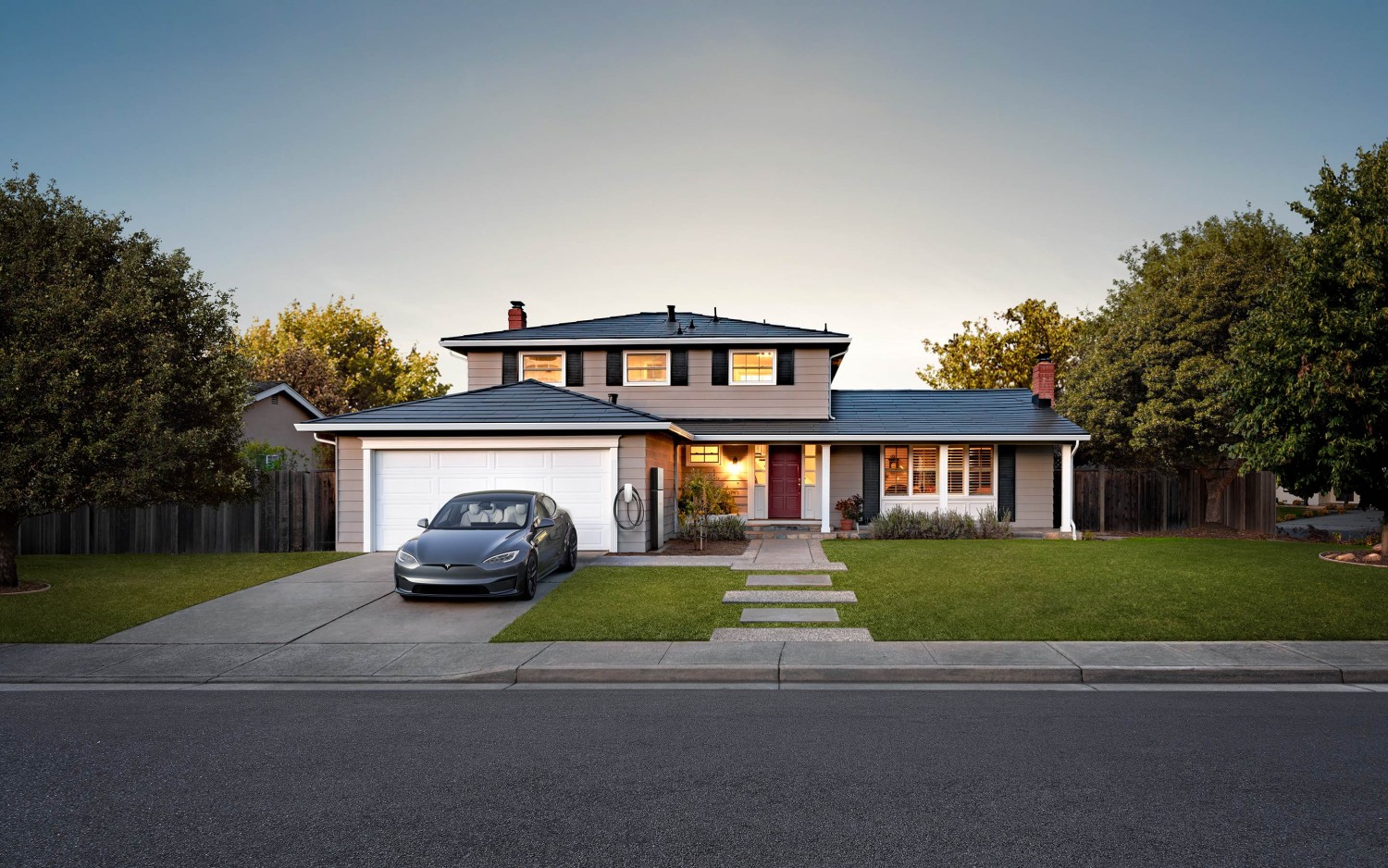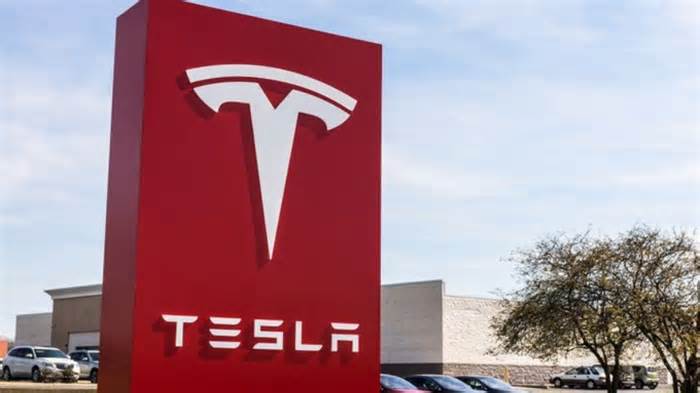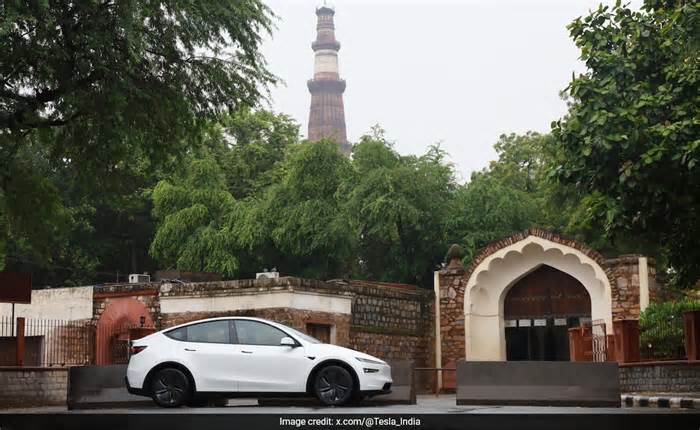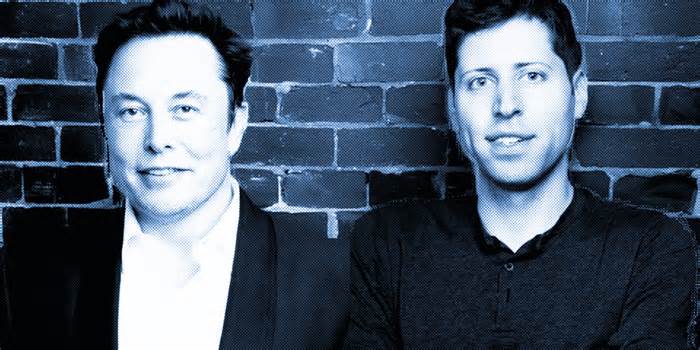
Tesla’s troubles are deeper than you think | CNN Business
- by CNN
- Jul 08, 2025
- 0 Comments
- 0 Likes Flag 0 Of 5

—
Teslaâs troubles go far beyond CEO Elon Muskâs recent dust-up with President Donald Trump, who accused the former âfirst buddyâ of going âcompletely âoff the railsââ in a social media slap fight over the weekend.
But while the battles between Musk and Trump are getting all the attention, the outlook for Teslaâs revenue and bottom line have gotten notably worse. And the company could even be back to losing money, for reasons unrelated to Muskâs personal politics.
Musk was Trumpâs largest financial supporter during the 2024 campaign, and was a mainstay at Mar-a-Lago and the White House at the start of Trumpâs second term, with his role in slashing the federal workforce at the Department of Government Efficiency (DOGE). But Musk has since announced he was starting a new political party due to his displeasure with the tax and spending bill signed by Trump on Friday â and the barbs on their respective websites have only increased since then.
Shares of Tesla closed Monday down 6.8%, as investors were concerned about the implication of Muskâs latest political moves, despite his promises to re-focus on the company. It rebounded only 1.3% in Tuesday trading.
âVery simply Musk diving deeper into politics and now trying to take on the Beltway establishment is exactly the opposite direction that Tesla investors/shareholders want him to take during this crucial period for the Tesla story,â wrote Dan Ives, an analyst at Wedbush Securities whoâs known for being optimistic about the company.
Ives put out a follow-up note Tuesday saying that the Tesla board should set ground rules to limit Muskâs political activities because the company is at a âtipping pointâ for its future.
âTesla is heading into one of the most important stages of its growth cycle with the autonomous and robotics future now on the doorstep and cannot have Musk spending more and more time creating a political party which will require countless time, energy, and political capital,â he wrote.
Still, Ives maintained his buy recommendation and $500 price target for the stock in his note. But analysts at William Blair cut their recommendation on the stock to âmarket performâ or neutral, and also cut their earnings forecast for the company.
Because even without the political stink, the Teslaâs financial outlook is suddenly looking notably worse.
Tesla did not respond to requests for comment. But when Ives posted his belief that the Tesla board should tie Muskâs future pay package to the amount of time he spends at Tesla and have oversight of his political âendeavors,â Musk responded with his own post on X, saying âShut up, Dan.â
Tesla about to lose important profit driver
Blairâs note pointed out that Trumpâs bill not only removed the $7,500 tax credit for electric vehicle (EV) buyers, but also eliminated the financial penalties for automakers that fail to meet federal emissions targets. Emissions fines have historically forced automakers who still build primarily gasoline powered cars and trucks to buy âregulatory creditsâ from EV companies.
Removing those fines eliminates âmarket demand for Teslaâs credits,â said the note from William Blair analysts Jed Dorsheimer and Mark Shooter. The sale of those federal and state credits added $10.6 billion to Teslaâs bottom line since 2019 and often enabled the company to post a profit.
Without the revenue from those regulatory credits, the company would not have reported a positive annual net income until 2021, and it would have been back in the red again in the first quarter of this year, when its net income plunged 71% compared to a year earlier on sharply lower sales around the globe.
A Tesla car is parked at an electric vehicle charging station. Tesla sales have recently hit a rough patch.
Justin Sullivan/Getty Images
Musk has largely downplayed all the recent bad news, saying the companyâs future rests on robots, artificial intelligence and self-driving taxis.
But the companyâs taxi service is very limited to date, launching only in Austin, Texas, for a select group of customers â mostly Tesla fans â and with a Tesla employee riding in the front passenger seat to monitor the carâs performance. That puts Tesla behind the robotaxi service already offered in Austin and three other cities â San Francisco, Los Angeles and Phoenix â by Waymo, the self-driving car unit of Google parent Alphabet.
And Teslaâs rollout has had its shares of problems, including a video showing a robotaxi traveling on the wrong side of the road for about half of a block and another video of a robotaxi slowly turning its front wheels into a parked car.
While Musk has promised his robotaxi service will be expanding soon across many other cities, he has not given any further details. He also hasnât said when the Austin service will be expanded to the general public, nor when the companyâs human monitors sitting in the front passenger seat will no longer be needed.
Meanwhile, Waymo has definitive plans to expand its service to Miami and Washington, DC, next year in partnership with Uber.
âWe expect that investors are growing tired of the distraction at a point when the business needs Muskâs attention the most and only see downside from his dip back into politics,â said the William Blair note. âWe would prefer this effort to be channeled towards the robotaxi rollout at this critical juncture.â
Drop in demand likely to continue
Then thereâs the problem of Teslaâs sales. Or rather, the lack thereof.
Global sales were down a record 13% in each of the first two quarters of this year, compared to a year earlier, even though demand for EVs overall continues to climb, a further sign of Teslaâs declining market share.
Part of the lost EV market share is due to increased competition, both from Western automakers rolling out their own EV offerings, and Chinese automakers that have made a massive push into the market. Chinese automaker BYD is poised to surpass Tesla in global annual EV sales this year for the first time, even though Tesla is a still a major player in China, and BYDs are not sold in the US.
BYD electric cars wait to be loaded to the automobile carrier BYD "Shenzhen", which will sail to Brazil from the Taicang Port in Suzhou, in China's eastern Jiangsu province, on April 27.
STR/AFP/via Getty Images
Demand is likely to weaken further come October 1, when the $7,500 tax credit for electric car buyers expires. When a previous version of the tax credit was phased out for Teslas in 2019, the company had to cut the price of the car by about half the value of the lost credit.
Tuesday Tesla posted on X that âIf there ever was a time to yolo your car purchase, itâs now,â referencing the upcoming tax credit expiration and using the acronym for âyou only live once.â
But Tesla has also faced missteps of Muskâs own doing. There has been backlash against Muskâs political activity, which has had a significant impact on Tesla sales. That is likely to continue even as he moves to distance himself from Trump.
In the early months of this year, hundreds of protests were held outside Tesla showrooms in the United States, Canada and Europe. Worries about self-inflicted brand damage started the companyâs shares on their downward slide.
It prompted Trump, who was still Muskâs ally at the time, to announce he was buying a Tesla for himself. In March, the president hosted an event at the White House urging others to buy the companyâs cars. At one point, Musk and Tesla investors might have hoped that in a closely divided country, the lost sales to Trump critics might be at least partly made up for by sales to Trump fans.
But Musk seems to now face the possibility of backlash from both sides of the political spectrum.
âHeâs been able to alienate everyone, which many thought was impossible, but heâs actually been able to do it,â Ives told CNN Monday. âAnd the problem is, this soap opera just keeps going on.â
Related
Please first to comment
Related Post
Stay Connected
Tweets by elonmuskTo get the latest tweets please make sure you are logged in on X on this browser.






 Energy
Energy

















